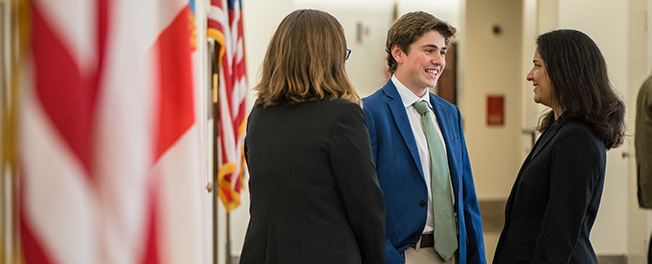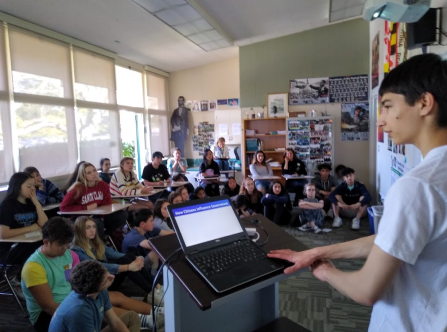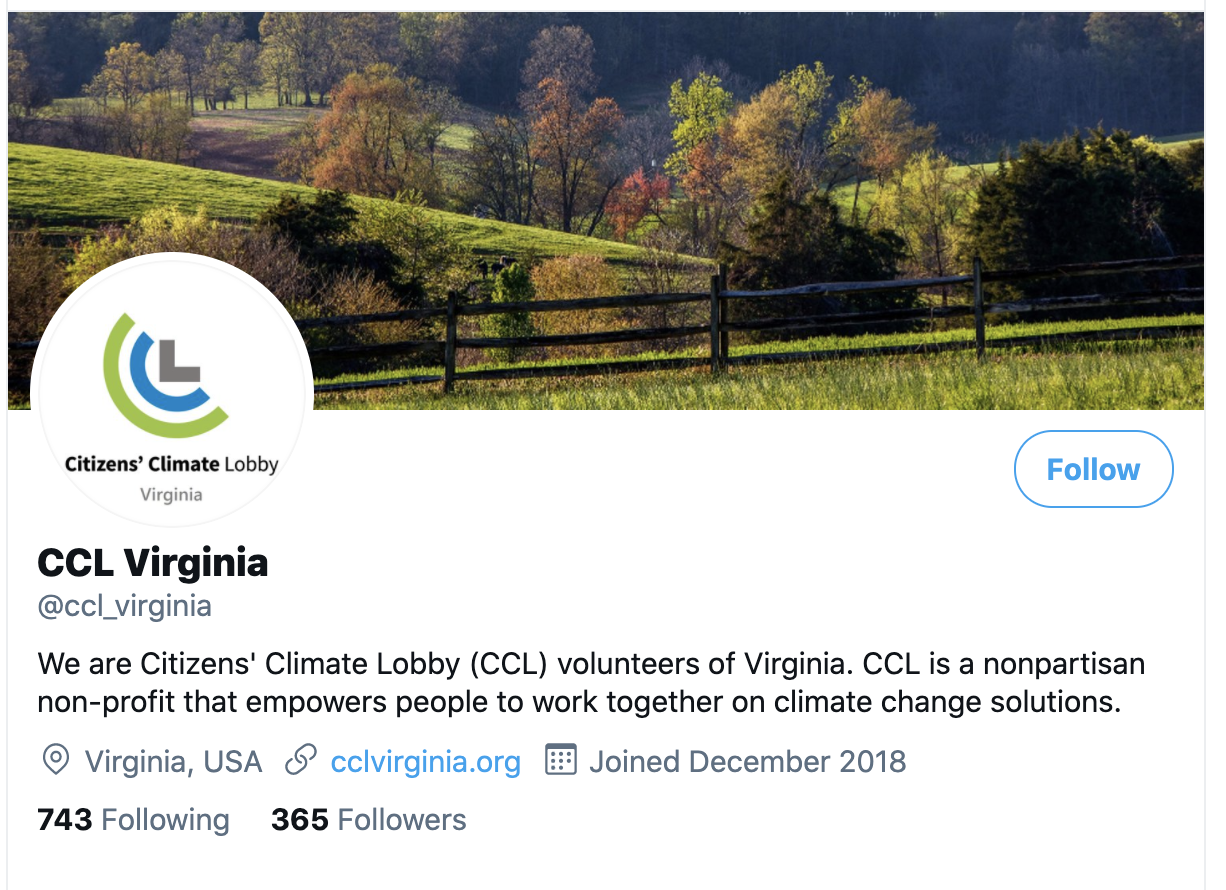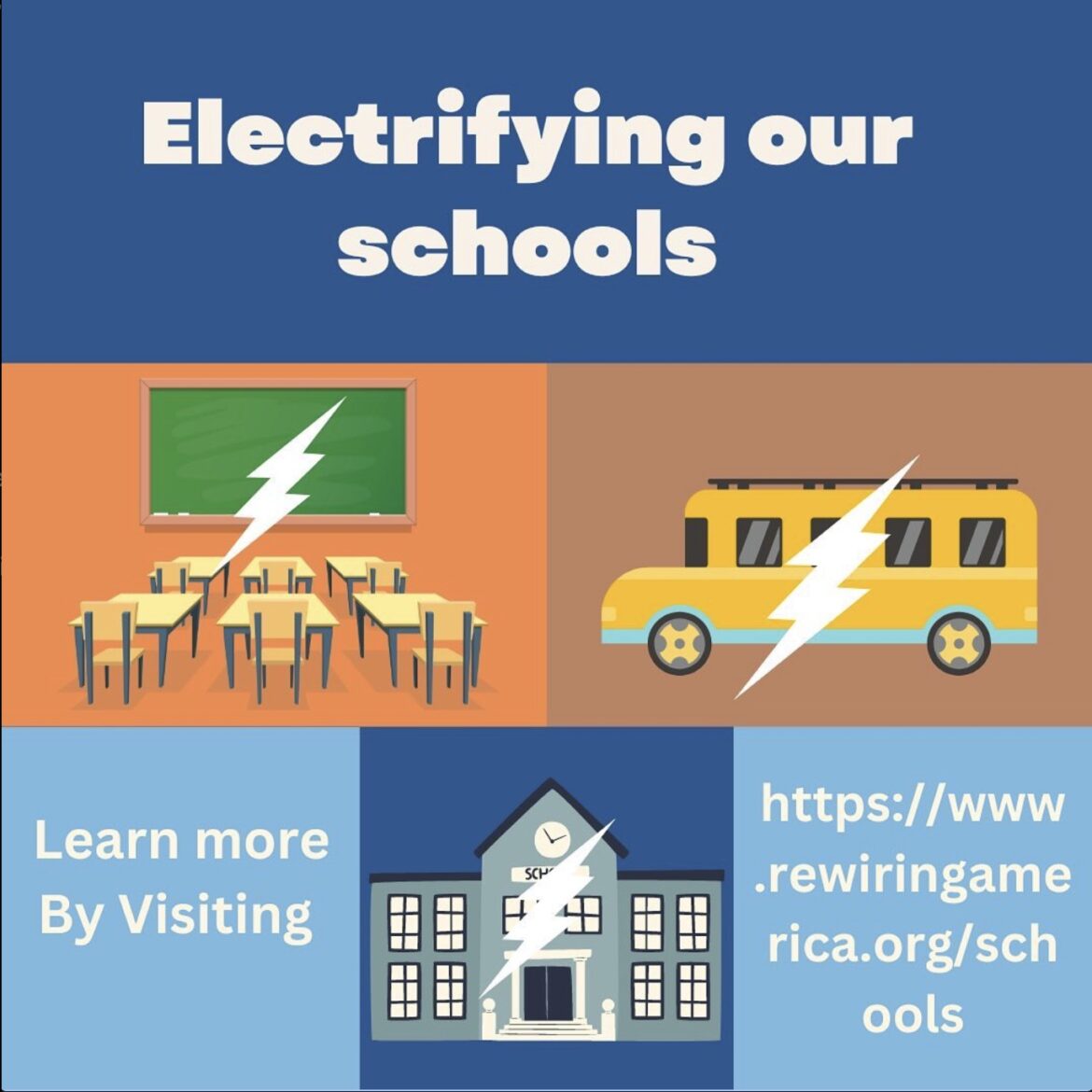
By: Claire Maxey and Esperance Han
School electrification. We’ve all heard the buzz about it, but what is it really about? As a youth, there’s the common misconception that it’s difficult to have your voice heard in climate activism. However, it’s quite the opposite. Think about the place you spend the most time in as a teenager: school. Not only do schools value students’ opinions, but it’s also the place where you are the most familiar with, and the perfect location to implement a climate project. Despite the intimidating expectations, bringing about electrification in your school and community is much more accessible than you think.
Before we begin, why is school electrification important? Well, The Intergovernmental Panel on Climate Change recently discovered that greenhouse gas emissions from our preexisting fossil fuel infrastructure are enough to consume our entire remaining Paris target carbon budget and to avoid this, we need to transition away from fossil fuels immediately. The United Nations Intergovernmental Panel on Climate Change (UNIPCC) has set 2030 as the Climate Change deadline for gas emissions to be halved and reach net zero by 2050. Something needs to be done immediately, and we need you to help us. Surprisingly, fossil fuels are not something only confined to factories and companies. 29% of emissions are from transportation, and 30% are from commercial and residential use; such as heating and lighting. Some of the key components to the school electrification campaign include electric heating pumps, electric kitchens, and electric buses – which are all cheaper to use, and not to mention better for the environment. This way, schools can have a consistent source of clean energy to run their basic energy functions. Think about how many schools there are in your county, and all the carbon emission you can reduce! Additionally, due to the new Inflation Reduction Act passed last year, if you get your electrification campaign approved, a substantial amount of funds may be available to use towards our cause from this legislation. Now is the perfect time to act!
A school board campaign to go about the #ElectrifyEverything simply begins by gathering motivated, environmentally conscious peers. Grab your friends along and don’t forget to find some supporting adults to assist you through this process. Then, draft a resolution. There are tons of resources Citizens Climate Lobby offers, that teach you step-by-step how to go about this. After, all it takes is to reach out to board members, and register to speak to them. Here’s a toolkit for a more in-depth explanation!
https://www.dpsclimateaction.org/toolkit
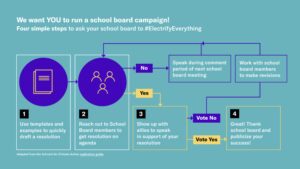
(figure 1)
Figure 1 demonstrates the collaborative, determined process of a school electrification campaign. To enact any plan, especially in the school scene, gaining the support of board members is critical. Learning how to speak during board meetings, working with the members with plans, and consistently sticking with the idea is the way to make a change. But for that to begin, a solid foundation with a resolution and team is necessary.
What will your electrification campaign consist of? Will you plan to install an all new electric kitchen? Perhaps emphasize electric buses or heating? We can achieve even expensive plans with proper grants and fundraising. Throughout it all, being creative, and most importantly, having fun, will be the key to success. Now, doesn’t #ElectrifyingEverything seem more accessible now that you are familiar with the concept? At the CCL National Youth Action Team, we are about to launch the Great School Electrification Challenge! This is an awesome opportunity to get involved as a member. Look out for future announcements so you can join us in our initiative. Let’s light it up!
Esperance Han is an 11th grader from North Marion High School in Ocala, Florida. She has been a part of Citizens’ Climate Lobby since 2021. She has been published many times by local newspapers and partaken in numerous outreach events with CCL. She plans to study environmental science and become a researcher to assist in alleviating the climate crisis.
Claire Maxey is a 12th grader at Great Oak High School in Temecula, California. She’s been in CCL since the summer of 2019 and has attended and hosted protests, tabled, and lobbied congress via zoom and in Washington, DC. She hopes to attend a 4-year college majoring in environmental studies/engineering.


